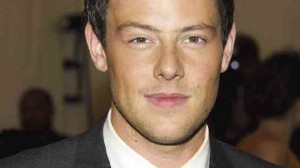We used to watch “Glee” quite regularly—until we felt that the show had been extended for one season too many, and had therefore overstayed its welcome—as least as far as we were concerned. But, last month, while channel-surfing as is our usual wont, we caught one of the show’s last telecasts for Season Four, and found it more eventful than usual.
In fact, the developments it featured came one after another in hectic, pell-mell fashion, as if this was the last show in the whole series (which of course it wasn’t, since Season Five started soon after).
The hectic highlights of last month’s “Glee” telecast: Rachel Berry auditioned for the prized lead role of Fanny Brice in a new production of the musical, “Funny Girl.”
Mr. Shue finally got married. The show’s resident glee club won the regionals tilt, beating another group which had “our” Jessica Sanchez as lead soloist. The series’ gay couple was on the verge of getting engaged.
Another member unexpectedly started a new chapter in her life when the amazing discovery was made that she had such a brilliant scientific intelligence that it rivaled Albert Einstein’s!
And the episode’s storytelling made a big deal of the “inspiring” side story of a lesbian couple who had been together for three decades, with their story culminating in a retroactive marriage proposal (since gays can now get legally married in some US states).
Twists and turns
Despite these and other plot twists and turns, however, “Glee” still felt a bit old after four seasons, so we wonder how it will sustain viewers’ interest and involvement throughout its 2013 telecasts.
Then, there’s the major plot problem of how to dramatically deal with the unexpected demise of the series’ male lead, Cory Monteith. Such real-life tragedies involving actors’ real lives—or deaths—test the storytelling creativity of production staffers in a major way.
For instance, when James Dean died in a car crash before he finished shooting all of his scenes for “Giant” (where he costarred with Elizabeth Taylor and Rock Hudson), the story had to be tweaked and body doubles had to be used before the much-awaited movie could be completed and shown.
Similarly, when Michael Jackson died before he was supposed to go on his comeback world concert tour, the production had to edit rehearsal footage together to come up with a “performance docu” version of the show.
What’s going to be “Glee’s” way of dealing with its lead actor’s unexpected demise? Jane Lynch’s tribute to him at the Emmys was a moving moment, but the series itself needs to bring closure to his character’s dramatic and thespic arc—or, will it opt to quietly, somberly move on?
